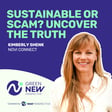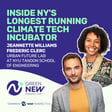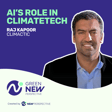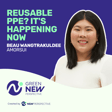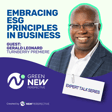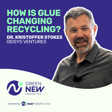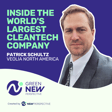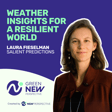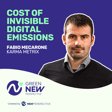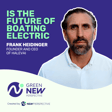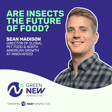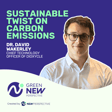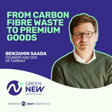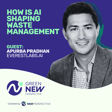
Redefining Food Sustainability: Upcycling Food Waste
Hey there, welcome back to Green New Perspective! Today, we're chatting with Caroline Coto from Renewal Mill about the big issue of food waste and its impact on climate change.
Did you know 40% of our food ends up in landfills? It's not just about the emissions, but also the wasted resources like water and nutrients. But here's the good news - reducing food waste is a powerful way to combat climate change.
And that's exactly what Renewal Mill is doing by upcycling food waste back into our supply chain. Sure, it's a challenging space to build a brand in, but with partnerships and collaboration, we can drive change forward.
So let's keep learning, keep acting and keep making a difference together. Don't forget to subscribe and share your thoughts! Cheers until next time!
🌍 SUSTAINABILITY PODCAST CREATED BY NEW PERSPECTIVE
========================
This podcast is proudly sponsored by New Perspective Marketing, a dynamic growth marketing agency in Boston, MA, celebrating 20 years in business. We help sustainably focused B2B organizations grow their brands and scale up revenue. If you or your organization is looking to grow, visit npws.com for more info.
🎧 SUBSCRIBE TO OUR PODCAST
===========================
- Spotify: https://bit.ly/3PSWIyI
- Apple Podcasts: https://bit.ly/3RvlHte
- Youtube: https://bit.ly/3RDzkXg
- Google Podcasts: http://bit.ly/465gjS5
- Deezer: https://bit.ly/3PvQaof
- Amazon Music: https://bit.ly/3PQlijS
- Zencastr: https://bit.ly/48xt75s
💬 FOLLOW US ON SOCIAL MEDIA
============================
- Instagram: https://www.instagram.com/greennewperspective/
- Twitter: https://twitter.com/gnperspective
- Facebook: https://www.facebook.com/greennewperspective
- LinkedIn: https://www.linkedin.com/showcase/greennewperspective/
- TikTok: https://www.tiktok.com/@greennewperspective
- Threads: https://www.threads.net/@greennewperspective
#sustainabilitypodcast #cleanenergy #greennewperspective #sustainability #cleanenergy #podcast #cleantech
